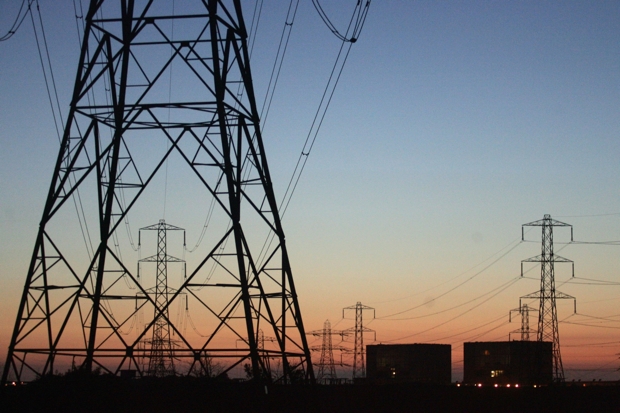Last Wednesday, following what National Grid casually referred to as ‘multiple plant breakdowns’ of a number of power stations – desperate attempts had to be made to find back-up power supplies to keep the lights on throughout the evening. It was a clear demonstration of the dangers of the UK’s outmoded power network and successive failures of policy. And before anyone starts bleating about the government’s slashing of wind and solar subsidies, the wind wasn’t blowing and the sun wasn’t shining, so they were unable to help out at a time of crisis. As a result, there was little spare power to cover the gap.
This meant that at one point, electricity was being sold for £2,500 per megawatt. This is over 40 times the usual price and is a cost that will ultimately be passed onto all of us bill payers. More worryingly, this situation is likely to get worse. National Grid has now revealed that more than 10 percent of the power plants that helped us survive Wednesday’s power shortage will not be available from next March, because their owners have decided to close them down due to a tax regime that makes this form of generation financially unviable. This is likely to mean even higher prices, or big manufacturers having to cut production. As energy professor Dieter Helm has suggested, this is ‘not a place any industrialised economy should ever be’.
The energy industry in modern Britain cannot continue to be messed around or taken for granted. We need to start helping companies to invest in new power plants or upgrade old ones, so they can convert to cleaner forms of fuel. This will ensure they can provide reliable and ideally renewable power for generations to come.
Like any other business, energy companies make difficult decisions every day. They decide what projects to invest in, and if the barriers are too high (because of political or financial pressures) they, regrettably, have to walk away. However, we need these firms, these creators of highly skilled, well-paid jobs, not just to help build a modern industrial economy but to power it. This simply won’t happen if we have nimbys blocking new developments or politicians squabbling over pet projects.
Now, more than ever, politicians, interest groups and the public need to come together and proclaim that Britain needs more sustainable, reliable forms of power generation – and work together to make this happen.
With all this in mind, it was a relief last week to get more detail on the plans for the National Infrastructure Commission. The political heavyweights involved, including Lord Adonis and Lord Heseltine, will hopefully be the right people to get us to agree on the way forward – and one of their priorities has to be the energy sector. That way, we can start to provide certainty and support for the UK’s power companies, who are keen to invest in shale and low-carbon power to keep the lights on and our homes warm.
Last Wednesday’s episode happened on a day when it was not particularly cold. But the pressures on our power network will increase as the weather turns, and we need to start re-building our troubled energy system sooner rather than later.
Nigel Adams is the Conservative MP for Selby and Ainsty






Comments